
 Flash News
Flash News
Albanian man who dived into river to save his two deceased children from drowning gets tattooed on their faces
Why World War III is 'speaking', and the Albanian PM Rama is silent
Iran faces near-total internet blackout
Accident on the Grand Ring Road, two cars collide
They supplied fuel to vessels without using a fiscal cash register, 2 people are being prosecuted in Himara
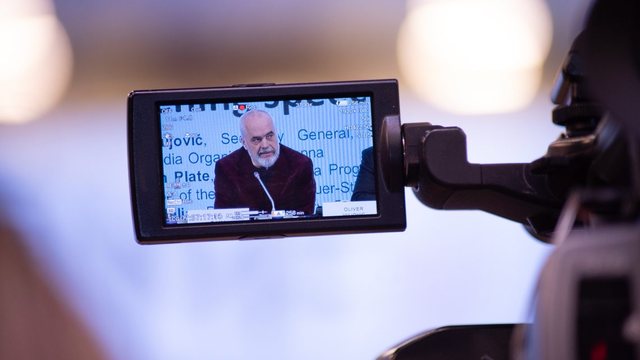
News of the opening of negotiation chapters has been much-hyped by the government in recent months, under the promise of Albania's rapid integration into the European Union, but an unofficial document from the secretariat of the Council of the European Union, the institution that makes decisions regarding the negotiation and membership process, emphasizes that the country needs significant reforms in a number of issues considered "fundamental", including the functioning of the rule of law and human rights.
The fight against corruption or organized crime are often-discussed topics, but a less-discussed topic that is part of the "fundamental" issues is the media, where the first document from BIRN emphasizes that "comprehensive reform is expected from Albania."
The issue of the media is also expected to take on particular importance in the negotiations following the publication later this year of the OSCE/ODIHR final report on the 2025 elections, where the novelty seems to lie in the firm conclusion that the media in Albania is biased and under deep government influence.
“Regarding freedom of expression and media freedom, Albania is still expected to adopt a comprehensive reform of the legal and regulatory framework,” the Council of the European Union document states, “in particular to strengthen the independence and efficiency of the Audiovisual Media Authority and the independence of the public broadcaster, which remain issues of concern,” the document adds.
The reforms requested by the EU are comprehensive. Initially, legal changes are required “to address the concern of high concentration in the media market,” an issue that the government has so far not expressed the political will to address.
Currently in Albania, the two main television stations, Klan and Top Channel, control 64% of the market by revenue, while the four big television stations, namely Klan, Top Channel, Media Vizion and A2 CNN, control 79.1% of the market. The EU document does not go into detail to explain what concrete changes could be undertaken to reduce the degree of concentration in the media, but calls for changes “to reinforce editorial independence”, to “strengthen the transparency of media financing and ownership” and to “establish rules for the allocation of state advertising and other state resources”.
Especially on the last point, the current government operates on the basis of some rules approved by the “Berisha” government in 2008, which allow public institutions to advertise without having to compete or be transparent about how much advertising they advertise and for what reasons. This often means that citizens see on television materials that are presented as news or shows, while in fact they are propaganda paid for by taxpayers’ money.
Another requested legal change is the “decriminalization of defamation,” a measure that normally does not require much effort on the part of the government other than initiating a process to remove defamation and insult from the Criminal Code. Although the decriminalization of defamation and insult is a long-standing demand of the European Union and a repeated recommendation of OSCE/ODIHR election reports, the current government has not expressed the political will to undertake this change.
The EU insists that any changes regarding the media will have to be carried out through a broad consultation process with local stakeholders but also with the Venice Commission.
“The executive should be ensured strong participation and engagement in the process,” the report says. “Legal amendments tend to be shared with the Venice Commission before adoption.”
The leaked European Union Council informal document also raised concerns about the government's attacks on the justice system following the arrest of Tirana Mayor Erion Veliaj, while appearing to pour cold water on expectations for rapid integration by stressing that, despite the opening of chapters for accession negotiations, "progress in the 'Fundamental' group of issues will determine the overall pace of the negotiations."
"As foreseen in the Negotiating Framework, no chapter can be closed before Albania achieves this objective," the document states. Reporter.al
Latest news



Israel strikes National Police headquarters in Iran, several injured reported
2025-06-18 21:29:11

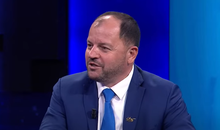
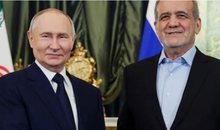

Why World War III is 'speaking', and the Albanian PM Rama is silent
2025-06-18 20:08:03
Avoid drying towels in the sun, here's how to keep them soft
2025-06-18 20:07:53

Cannabis legalization in Albania, new law, old risks
2025-06-18 19:39:54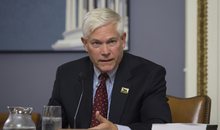
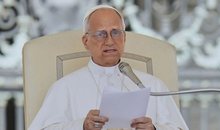
Pope Leo XIV calls for peace: Advanced weapons are temptations we must reject
2025-06-18 19:22:29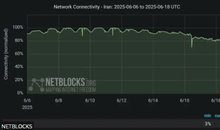
Iran faces near-total internet blackout
2025-06-18 19:07:09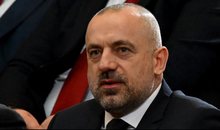
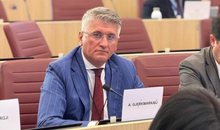
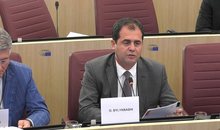
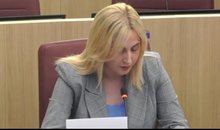

INSTAT: Heart diseases, the leading cause of death in Albania during 2024
2025-06-18 18:05:33

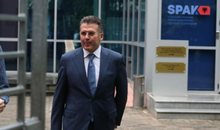

Trump does not rule out the possibility of striking Iran
2025-06-18 17:19:35
Accident on the Grand Ring Road, two cars collide
2025-06-18 17:05:57
Kume: Vote recount increases credibility
2025-06-18 16:59:38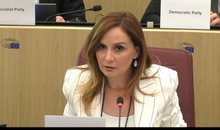
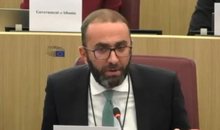

Ndërron jetë ish-futbollisti dhe trajneri i njohur shqiptar
2025-06-18 16:17:02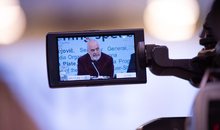
EU calls for "comprehensive reforms" for the media in Albania
2025-06-18 16:06:20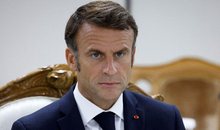
Macron convenes France's Defense and Security Council
2025-06-18 16:04:29
Israeli attacks in the last 24 hours, at least 140 killed in Gaza
2025-06-18 15:58:13
Reflection on Rama's kneeling before Meloni
2025-06-18 15:52:53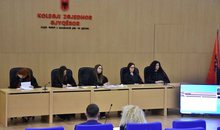

Conference League second round draw, Albanian teams learn potential opponents
2025-06-18 15:29:29

Eurostat 2024: Prices in Albania are catching up with EU levels
2025-06-18 15:07:03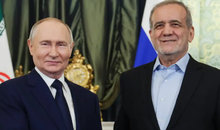
War/ Why is Russia hesitant to help Iran in its conflict with Israel?
2025-06-18 15:00:19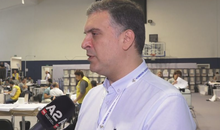
Blushi: Ilir Meta's voice will resound louder than ever in the new Parliament
2025-06-18 14:50:42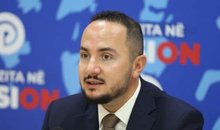
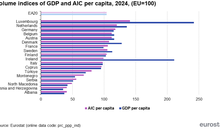

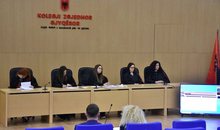
The Electoral College also rejects the DP's complaint for Kukës and Gjirokastra
2025-06-18 14:09:49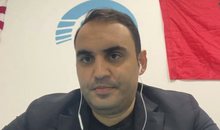
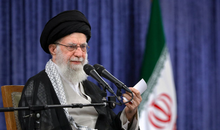
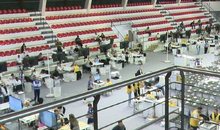
The College rejects the DP's request for invalidation of the elections in Lezha
2025-06-18 13:41:57
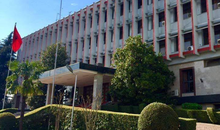
Evacuation of 5 Albanians from Israel, 3 of them arrive in Albania
2025-06-18 13:23:34
Amidst chaos and abuse, is Albania ready to offer sustainable tourism?
2025-06-18 13:01:56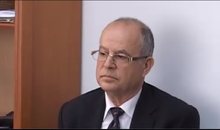

SMILE.al - 5 years of history, the best version of success!
2025-06-18 12:42:25

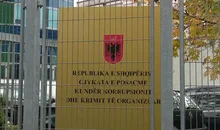

Causes of death in Albania, heart disease leads, suicides increase
2025-06-18 11:47:36
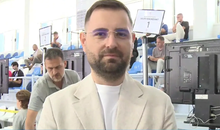
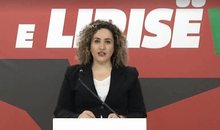

The claim for Jorgo Goro is postponed
2025-06-18 10:59:17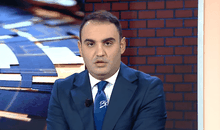

Gave candy and attempted to abuse minor, 60-year-old arrested in Maliq
2025-06-18 10:33:10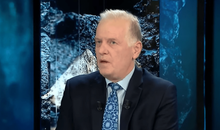
Israel, Iran, us and our world
2025-06-18 10:21:43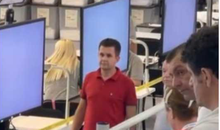
Vote recount for Tirana, Ilir Alimehmeti also present in the process
2025-06-18 10:13:14
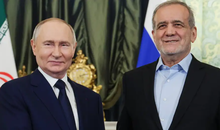
Why is Russia hesitant to help Iran in its conflict with Israel?
2025-06-18 10:00:55
Israel-Iran War/ US Embassy in Jerusalem Temporarily Closed
2025-06-18 09:42:06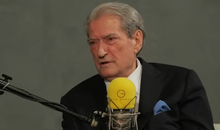
"I wanted to become a writer", Berisha recounts his dream left half-abandoned
2025-06-18 09:33:52
Author of several thefts, thief from Tirana caught in Durrës (NAME)
2025-06-18 09:24:20

Taksa të larta dhe diskrimin, pse emigrantët po largohen përsëri nga Gjermania?
2025-06-18 09:02:32
Socially dangerous person, 27-year-old arrested in Pogradec
2025-06-18 08:51:39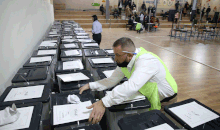
The recount of votes for the Tirana district begins today
2025-06-18 08:37:37

Horoscope, what do the stars have in store for you today?
2025-06-18 08:12:05

Morning Post/ In 2 lines: What mattered yesterday in Albania
2025-06-18 07:45:20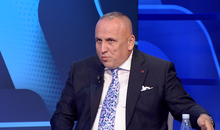

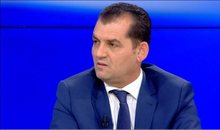
Former prosecutor: Criminal groups are more structured in Albania
2025-06-17 22:02:21
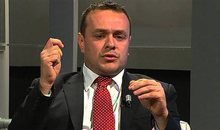


Korça/ A woman comes into contact with electricity
2025-06-17 20:55:40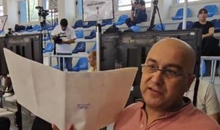

Death makes you neither good nor bad.
2025-06-17 20:38:05
Only 1 in 5 tourists sleep in apartments or hotels
2025-06-17 20:25:16
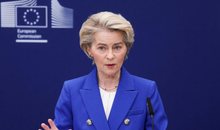
European Commission proposes complete ban on Russian gas imports
2025-06-17 19:46:58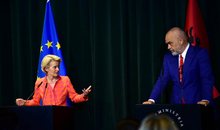
'Serious concern': EU condemns government attacks on SPAK after Veliaj's arrest
2025-06-17 19:36:01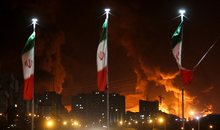
Fuel prices soar amid Israel-Iran tensions
2025-06-17 19:19:12


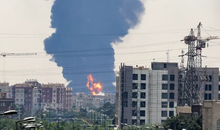
Iranian military says it struck Israeli military intelligence center in Tel Aviv
2025-06-17 18:17:27
The recount of 94 boxes of Gramsh and Peqin is completed
2025-06-17 18:08:47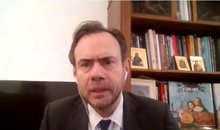
Source: The world order is destroyed, how is the world being run today
2025-06-17 17:50:28
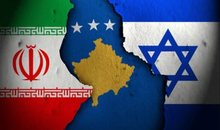
Albania and Serbia begin evacuations from Israel, Kosovo no clarification
2025-06-17 17:20:50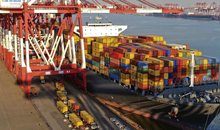
Exports have no power to recover, businesses suspend investments
2025-06-17 17:10:36
Atlanta United close to deal with Albania international center back
2025-06-17 16:59:03
